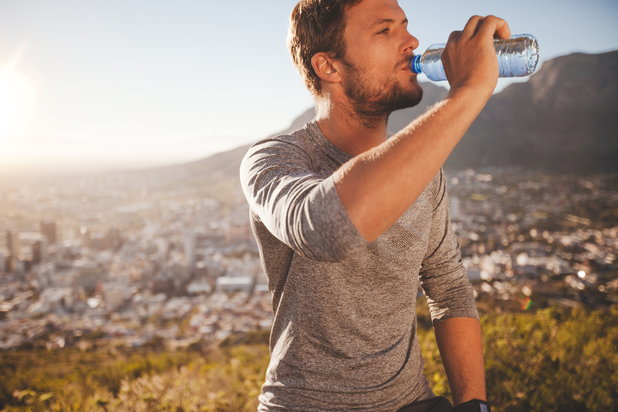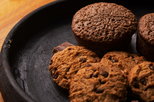With summer in full swing and temperatures soaring, we are reminded again of the importance of staying hydrated and healthy. But, did you know that proper hydration is especially important during the early stages of recovery?
Since our bodies are composed mostly of water, all of our cells depend on it to function properly. Water and electrolytes are needed to circulate blood efficiently, regulate body temperature and blood pressure, and lubricate our joints. Drinking enough fluids is also crucial for cognitive function. Water is essential to our survival. So, how much do we need?
Nutritionists recommend drinking half of your body weight in ounces of water daily. For example, if you weigh 200 pounds, you will need to drink 100 ounces of water. And, hydration needs will vary with activity levels, in summer months and during illness.
Why is Hydration Essential in Early Recovery?
More fluids than normal are expended as the body works to flush out toxins and residual waste products left behind from longtime alcohol and substance abuse. The detoxification process adds a strain on the already-stressed individual that is enduring so much change. As healthy new habits are formed—including proper nutrition, sleep, and exercise—optimal hydration is just as important.
Being well hydrated also facilitates absorption of water-soluble nutrients, while aiding in digestion and transporting oxygen to your cells. Proper hydration also helps prevent constipation, hemorrhoids, muscle cramps, headaches, and bladder infections.
Adequate hydration increases oxygen levels in the blood, helping you to easily burn stored fat for energy. In early recovery, your energy levels are vital to coping with all the lifestyle changes you are experiencing.
Are You Dehydrated?
Dehydration is the loss of water and electrolytes, and many of us are chronically dehydrated without knowing it. If you are suffering from dehydration you may experience dry mouth, lethargy, dizzy or lightheadedness, headaches and heart palpitations. Mild dehydration occurs with just minimal body fluid loss, so it's important to be proactive with hydrating yourself during all seasons.
Your blood and many other bodily fluids are comprised of water and when you are dehydrated they become thicker. That means you won’t be able to receive the necessary oxygen and nutrients circulating as efficiently, causing you to feel tired, run-down and sluggish.
How to Stay Hydrated
1. Remember Your Water Bottle
Get in the habit of bringing your water bottle with you and refilling it during the day. Drink a few glasses of water before each meal and a few large glasses first thing in the morning, this helps replenish fluids lost during the night.
Drink before you start to feel thirsty, as thirst is often the first sign of dehydration and can be confused with hunger. You may find a water reminder app useful in the beginning to help keep you on track.
2. Limit Dehydrating Foods/Beverages
You don't have to give up your morning cup of Joe, just limit your caffeine intake for the rest of the day. Caffeine has a diuretic effect causing more fluid loss throughout the day. If you find yourself in an afternoon slump, trade your caffeinated beverage for a few glasses of refreshing cold water.
Avoid soda and sports drinks that are laden with processed sugar. Craving sugar can be an early sign of dehydration. Sugar cravings may also present a slippery slope to those in recovery. Reach for your water bottle instead of the sugar and it will help you ride out the craving.
3. Enjoy Water-Rich Foods
Keep your fridge stocked with water-rich fruits and vegetables such as watermelon, cantaloupe, oranges, strawberries, cucumbers and zucchini.
Lettuce and spinach are nearly 100 percent water. Add celery, tomatoes, peppers and broccoli for a healthy salad. As an added bonus, these foods are loaded with vitamins, fiber and antioxidants. You can also pack some fruit in your lunch for healthy afternoon snacks.
4. Monitor Your Urine
As your body adjusts to its new sober lifestyle, it is resetting itself and will let you know if dehydration occurs. Urine that is light yellow or straw-colored indicates proper hydration. If your urine is dark brown and concentrated you are dehydrated. You will come to learn your personal water intake needs, and this is one of the best methods of monitoring.
It is not uncommon for people who have been chronically dehydrated to have a UTI (Urinary Tract Infection). If your urine is cloudy or foul-smelling or if you experience pain or burning when urinating, seek medical attention immediately. UTIs can also cause confusion and/or hallucinations, especially in the elderly.
5. Jazz up Your Water
Avoid boredom by adding some zesty flavors to your water. Try a splash of fruit juice or infusing your water with sliced fresh fruits. Lemons, limes and cucumbers also gently aid in the detoxification process. Make ice cubes with fresh-squeezed fruit juices and toss a few in your water. Get creative!
6. Sip Coconut Water
100% pure coconut water is a hydrating powerhouse containing natural sugars, minerals and electrolytes. It's filled with potassium to help balance out sodium levels and is ideal for post-workout recovery and hydration.
Coconut water's antioxidants and alkalizing components further support the removal of harmful toxins and bacteria from your liver. Be sure to pack some coconut water when traveling this summer.
Your new hydration habits will begin to come naturally as you start reaping the immediate benefits of detoxing and being properly hydrated.
Raise a cold glass of life-giving water and toast to your good health!
|
If you or someone you know is seeking help from addiction, please visit our directory of treatment centers or call 800-772-8219 to speak to a treatment specialist. |








